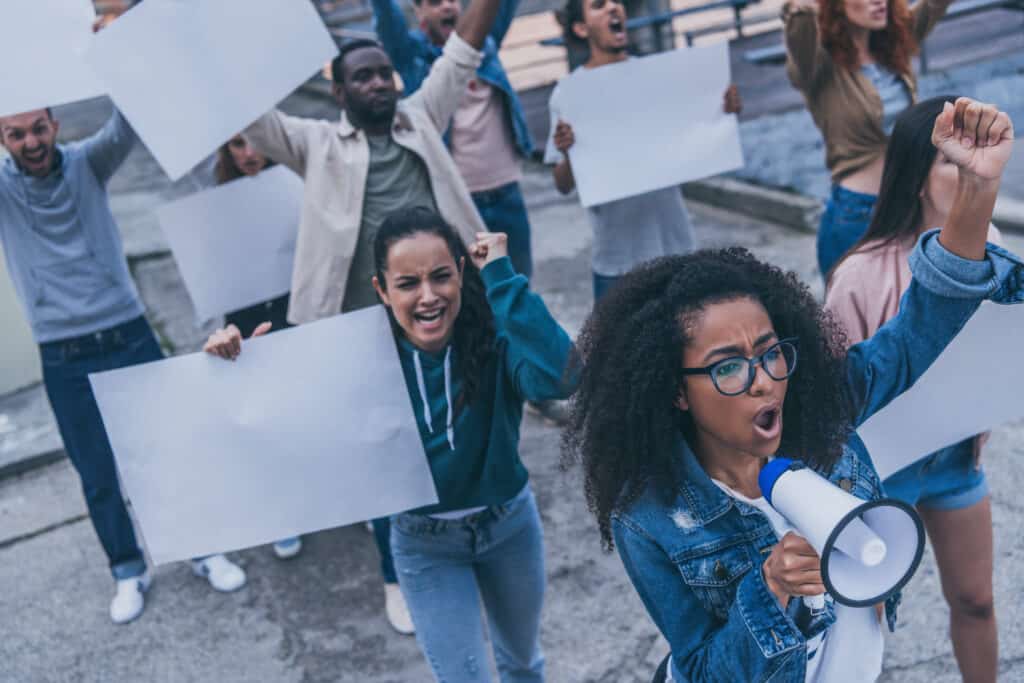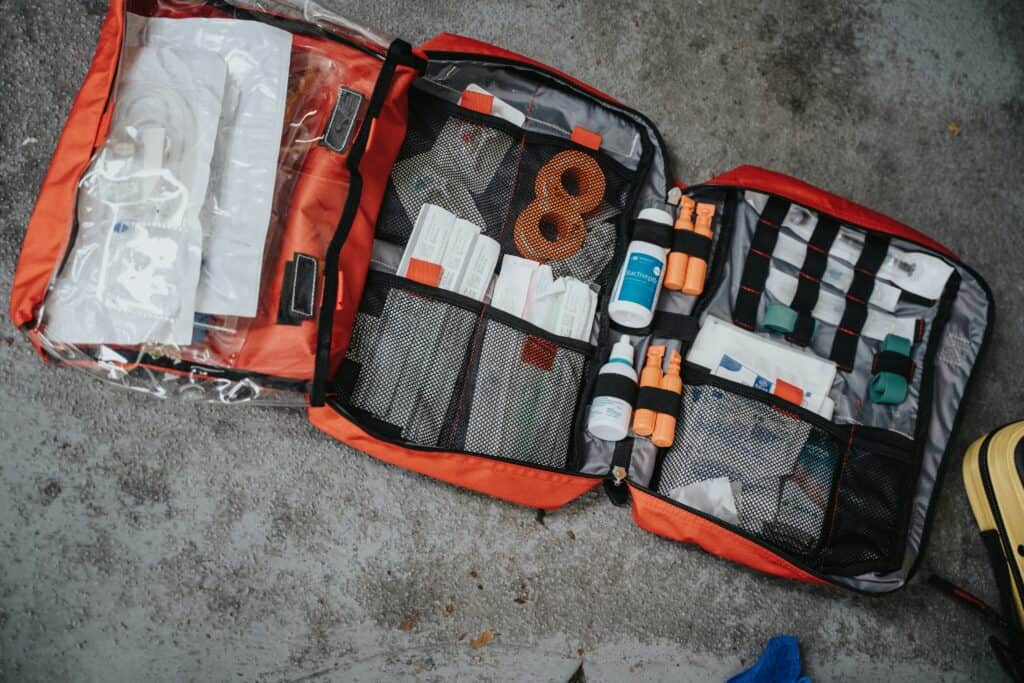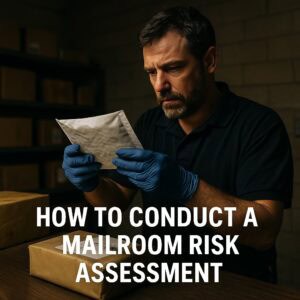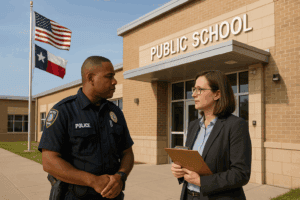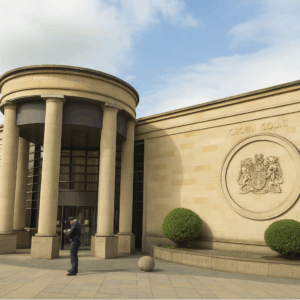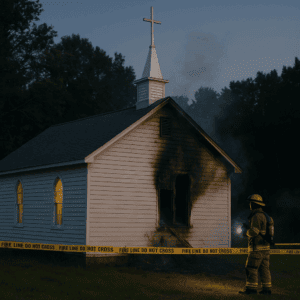Churches have the right to maintain a peaceful and orderly environment for their congregants and visitors.
As private property owners, they can restrict access to their property and ensure that disruptive individuals do not disturb religious services or events.
Case law supports the idea that churches have the authority to decide who can enter or remain on their premises, even if their facilities are open to the public.
One common scenario that churches may face involves protestors entering their property.
In such cases, it is essential for the church leadership to handle the situation calmly and legally.
A designated representative, accompanied by witnesses, should politely ask the protestors to leave the property.
Simultaneously, another member should contact the police, if not done already, to report the trespassing and seek their assistance.
Under no circumstances should church members attempt to physically remove the protestors or engage in confrontations.
Instead, the focus should be on protecting the congregation and premises by initiating a lockdown procedure, if necessary, until the police arrive to handle the situation.
By respecting legal boundaries and focusing on maintaining a secure environment, churches can effectively address disruptive individuals and preserve the sanctity of their religious services.
Churches and Private Property
Churches, as private property owners, have the right to restrict access to their property.
This legal understanding holds that churches do not need to permit anyone to enter or remain on their premises just because their ministries are open to the public.
It is essential for churches and their property owners to be aware of their rights in order to maintain order and security at their establishments.
In situations where a church believes a person might disrupt a service or activity, they possess the legal capability to either deny this individual access or require them to leave.
This principle also applies to groups of protestors who try to encroach on church property.
If such a scenario arises, the appropriate course of action is to have a single representative, accompanied by a couple of witnesses, ask the protestors to leave.
Meanwhile, another person should call the police for assistance, if this step has not already been taken.
Under no circumstances should church staff or members attempt to physically remove protestors from the property.
Instead, if the police response is delayed, it is prudent to initiate a lockdown, thereby preventing unauthorized access to the building by demonstrators if they are trying to get in.
Once the trespassers have been asked to leave, their continued presence on the property constitutes a trespassing violation.
In summary, churches, being private property, reserve the right to control access to their premises.
Property owners and administration must exercise this right responsibly and in accordance with the law, ensuring the safety and well-being of their congregants and staff.
Legal Framework for Handling Disruptive Individuals
Churches have the legal authority to address disruptive individuals on their property.
As private property owners, they can restrict access to their premises and are not required to allow anyone to enter or remain on their property simply because their ministries are open to the public.
When dealing with disruptive persons, such as protestors, churches should be cautious in their approach.
Rather than resorting to physical force, they should send a representative to ask the individuals to leave, accompanied by witnesses.
Simultaneously, someone should contact the police for assistance, as the protestors may be considered as trespassing after being asked to vacate the property.
It is essential to maintain a neutral and composed demeanor during this process.
In some cases, church leaders can ask courts to issue an order barring a disruptive individual from the church premises.
If the individual violates the order, the police can remove them, and they may be found in contempt of court.
Laws and regulations regarding disruptive behavior on private property may vary from state to state.
Therefore, it is essential for church leaders to familiarize themselves with local laws pertaining to property and trespassing before taking action against disruptive individuals.
In summary, churches have the legal authority to regulate access to their properties, ask disruptive individuals to leave, and seek court orders when necessary.
They must act within the limits of laws and regulations while maintaining a confident, knowledgeable, and neutral stance to ensure a peaceful resolution to such situations.
Addressing Disruptive Persons in Church Services
Churches have the right to maintain a peaceful environment during their services by addressing any disruptive persons present.
This is backed by case law that supports the idea that churches do not have to allow anyone to enter or remain on their property simply because they are open to the public.
If a church identifies a disruptive person during the service, it can take appropriate measures to handle the situation.
First, they can choose to deny access to the disruptive person if they have a reasonable belief that the person will cause disturbances in their services.
When denying access or instructing someone to leave, it is important to remain calm, confident, and clear in communication.
In cases where the disruptive person is being offensive or threatening, it is essential to involve the police to handle the situation.
A designated person in the church, such as an usher or member of the security team, should call the police to report the incident and request assistance.
The police can then decide whether it is necessary to intervene and what further actions need to be taken.
While waiting for the police to arrive, ushers or other church staff members should calmly approach the disruptive person and ask them to leave the premises, ensuring that the conversation is witnessed by a couple of other individuals.
However, it is crucial that church members avoid trying to physically remove the disruptive person, as this can lead to escalation or potential legal issues.
If the situation warrants it, the church should consider going into lockdown to prevent the disruptive person from gaining further access inside the building.
In conclusion, handling disruptive persons in church services requires a combination of clear communication, collaboration with law enforcement, and adherence to legal boundaries.
By knowing their rights and acting in a confident, knowledgeable manner, churches can maintain a peaceful, welcoming environment for their worshipers.
Church Policies for Maintaining Order
Churches, being private property owners, have the responsibility to ensure the safety and security of their premises for their ministries and congregation members.
By implementing clear policies, they can effectively maintain order and create a conducive environment for worship and mission-related activities.
It is essential for churches to establish guidelines on how to handle disruptive individuals or groups entering their property.
One approach is assigning designated personnel to monitor and address any potential disruptions.
This team can act as a bridge between the church and law enforcement when necessary.
In situations where a person or group is being disruptive or presenting potential safety threats, church representatives should calmly and politely ask them to leave the premises.
Even with the support of case law, it is crucial that churches do not resort to physically removing individuals on their own.
Instead, involve the appropriate authorities when necessary.
When developing policies, it’s important to keep in mind the need for flexibility and adaptability.
Safety and security threats can vary, making it essential to build a plan that covers a range of scenarios.
For example, churches may face emergency situations that require immediate lockdown measures or a coordinated evacuation.
A comprehensive policy should detail response procedures for each possible scenario.
Effective communication is crucial when enforcing these policies.
Members and staff should be informed about these guidelines and the proper protocols to follow in various situations.
Regular training and reviews can help reinforce this information and ensure that everyone remains proactive in maintaining a safe environment.
It’s worth noting that each church should tailor its policies according to its specific needs and context.
When creating or updating safety guidelines, it’s recommended to consult with legal professionals to ensure compliance with local laws and regulations.
Implementing sound church policies for maintaining order not only safeguards the congregation and property but also helps protect the integrity of the ministries and the overall mission of the church.
Handling Demonstrations and Protesters
Churches, like any other private property, have the right to restrict access and maintain order within their premises.
Handling demonstrations and protesters requires a vigilant and proactive approach, reinforced by appropriate legal measures and available resources.
Protesters and demonstrations can be challenging for churches as they seek to exercise their religious freedoms while also respecting the rights of others to express their opinions.
To approach this situation with confidence and clarity, churches can create a demonstration response checklist.
This should include processes for contacting law enforcement, implementing a lockdown procedure, and coordinating with key personnel such as security and administrative staff.
Implementing lockdown procedures can be beneficial in protecting church members and staff from potential harm.
As part of a demonstration response checklist, security measures such as securing entry points, monitoring access, and maintaining communication channels with law enforcement should be established.
When faced with a disruptive group, it is essential to prioritize safety and avoid physical confrontations.
Brotherhood Mutual, an insurance company serving ministries, advises that churches have the right to ask protesters to leave their property when they interfere with activities or services.
If the protesters remain on the premises after being asked to leave, they are committing trespass, and the church has the legal basis to involve law enforcement.
By following a well-prepared plan and relying on support from experienced organizations like Brotherhood Mutual, churches can navigate the complexities of dealing with protesters and demonstrations, ensuring a peaceful and secure environment for all its members and visitors.
Legal Measures Against Disruptive Individuals
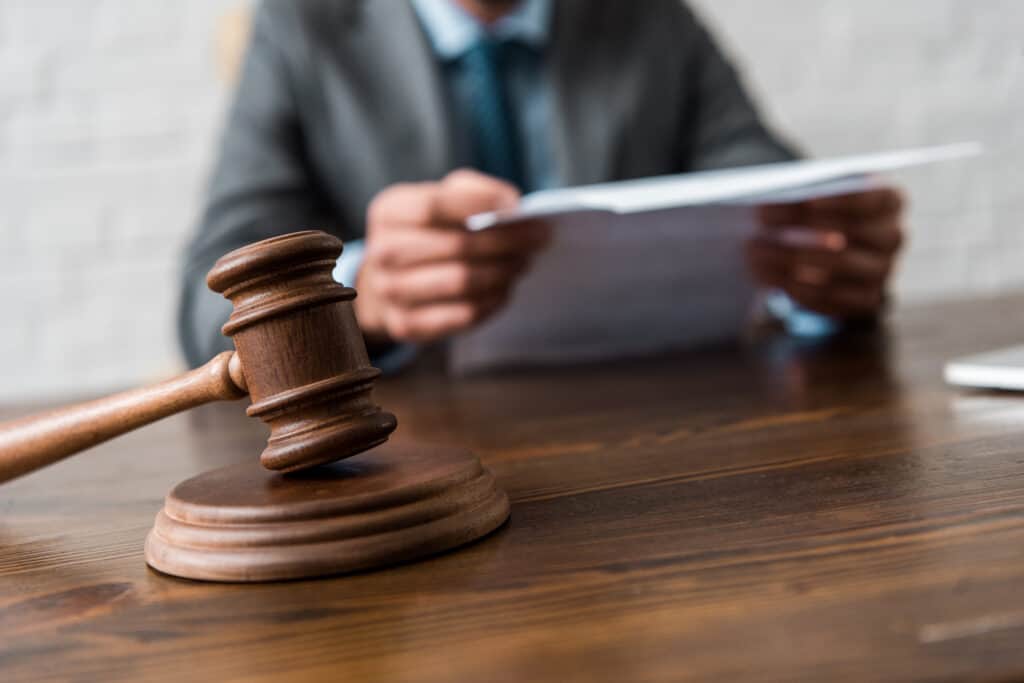
Churches are allowed to take legal measures in order to prevent disruptive individuals from causing disturbances during religious services.
An effective way to deal with disruptive persons is by obtaining a restraining order from civil courts.
This legal document prohibits the individual from entering the church premises or attending religious services, thus providing a safeguard against harassment and disruption in the place of worship.
Church Law & Tax reports that church leaders can ask a court to issue an order barring disruptive persons from entering the premises.
In case a disruptive individual enters the church premises without any prior warning, and the church staff encounters any form of harassment or disturbance during religious services, the individual can be considered trespassing.
Legal expert Richard R. Hammar emphasizes that churches do not have to tolerate persons who disrupt their religious services, and they can use the legal system to protect their members and maintain a peaceful environment.
By obtaining a restraining order from civil courts, churches can ensure that disruptive individuals do not cause any undue distress to the congregation or hinder the smooth functioning of religious services.
In conclusion, there are legal measures that churches can take to protect their congregation and services from disruptive individuals.
By understanding their rights as private property owners and utilizing the legal system to obtain restraining orders, churches can maintain a secure and peaceful environment for worship activities.
Constitutional Rights and Church Disruptions
The relationship between constitutional rights like freedom of movement, worship, and speech, and church disruptions must be considered when dealing with disruptive individuals on church property.
While these rights are protected by law, it is important to note that churches are still private property and can exercise the ability to restrict access in the interest of maintaining order and preserving a respectful environment.
Freedom of worship and free speech are highly valued, but they do not grant a person the right to disrupt religious services or activities at a church.
Private property rights give churches the authority to take action against individuals causing disturbances.
In such situations, constitutional rights such as freedom of movement do not ensure that a person can enter or remain on church property when their actions pose a threat to the church’s operations.
When dealing with a non-forum venue like a church, the property owner maintains the right to set the rules and conditions for gathering.
This implies that disruptive protestors or intruders can be lawfully removed or asked to leave.
Church leaders can also seek a court order to bar a disruptive individual from entering their property.
It is essential to consider the irreparable harm that may be caused by not taking appropriate action against those causing disturbances at church services.
By allowing individuals to continue disrupting religious activities, church leaders could unintentionally jeopardize the well-being and safety of their congregation.
This is why it is crucial to balance the protection of constitutional rights with ensuring a peaceful environment for religious activities.
In conclusion, although church disruptions may involve constitutional rights such as freedom of movement, worship, and speech, it is important to remember that churches are private property and have the right to restrict access.
The law supports churches taking necessary steps to maintain order and protect their congregation from disruptive individuals.
Limitations for Churches in Removing Disruptive People
Churches have some legal boundaries when it comes to removing disruptive people from their premises.
One of the primary concerns in situations involving disruptive people is the potential for physical altercations.
Church leaders should avoid using physical force to remove individuals from the property and instead opt for a verbal request for the person to leave.
If necessary, legal authorities should be contacted for assistance.
When it comes to protecting church property, churches can enforce policies that restrict access to their premises.
This can include posting signs indicating that the property is for church use only, as well as banning activities like picketing or demonstrating on church grounds.
Managing disruptions on church premises also involves identifying potential dangers and taking appropriate action.
Church leadership has a responsibility to take reasonable steps to ensure the safety of their congregation.
In certain cases, this may include warning third parties of foreseeable dangers.
In summary, churches must navigate a delicate balance between welcoming people to attend their services and protecting their property, congregation, and the sanctity of their worship spaces.
While they are permitted to remove disruptive individuals within certain boundaries, it is essential to approach this process with caution, knowledge, and a commitment to the rights and safety of all involved.
Frequently Asked Questions
Can a church legally deny entry to disruptive individuals?
Yes, churches are considered private property and have the right to deny entry to disruptive individuals. Case law supports this notion, and churches are not obligated to allow anyone to remain on their property simply because they are open to the public.
How should churches handle disruptions during services?
Church leaders can ask a court to issue an order barring a disruptive person from the church’s premises. If the person violates the order, they may be removed by the police and may be found in contempt of court. It is important for churches to train greeters and ushers, who are most likely to encounter disruptive individuals, in order to minimize disruptions and potential liability.
Is a church considered private property when dealing with disruptions?
Yes, a church is considered private property when dealing with disruptions. As such, they have the right to restrict access to their property and remove disruptive individuals.
What steps can churches take to prevent protests on their property?
Churches can establish clear policies regarding access to their property and communicate these policies to their congregation. Additionally, they can train their staff and volunteers to recognize potential disruptions and respond accordingly.
Are there legal repercussions for protesters disrupting church services?
Yes, there may be legal repercussions for protesters who disrupt church services. Depending on the circumstances, protesters may be charged with trespassing, disorderly conduct, or even contempt of court if they violate a court order barring them from the church premises.
How do churches enforce trespassing laws for unwanted individuals?
Churches can enforce trespassing laws by first asking the unwanted individual to leave the property. If the individual refuses or becomes disruptive, the church can call the police for assistance. In some cases, churches may seek a court order to bar disruptive individuals from entering their property.
Disclaimer
We are not legal experts and this is not legal advice. Always seek professional legal guidance as well as that from law enforcement.

